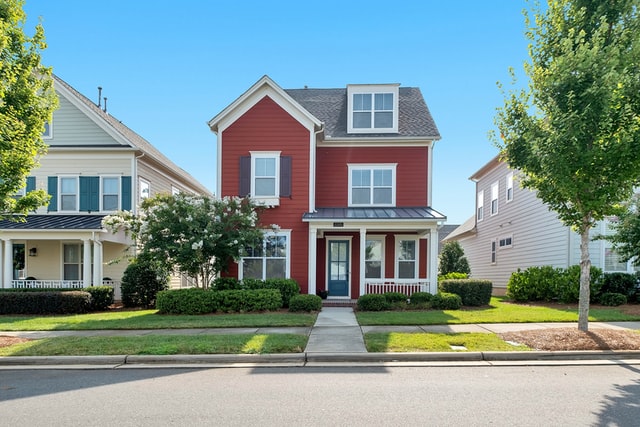Sustainable Real Estate Development in Nigeria: Challenges and Opportunities

Introduction
Sustainable real estate development in Nigeria presents both challenges and opportunities for the country’s future growth. As the demand for housing and infrastructure increases, it is crucial to explore sustainable practices that minimize environmental impact and promote long-term economic and social benefits. In this article, we will delve into the key challenges faced in sustainable real estate development in Nigeria, as well as the opportunities that arise from adopting sustainable practices.
Environmental Challenges
Limited Access to Clean Energy
One of the primary challenges in sustainable real estate development is the limited access to clean energy sources. Traditional energy sources, such as fossil fuels, contribute significantly to pollution and greenhouse gas emissions. Embracing renewable energy options, such as solar and wind power, can help reduce the environmental impact of real estate development and ensure a cleaner future for Nigeria.
Inadequate Waste Management Systems
Another significant challenge is the inadequate waste management systems prevalent in Nigeria. Improper disposal of construction waste and the lack of recycling facilities contribute to environmental degradation. Implementing effective waste management practices, including recycling and waste reduction initiatives, can mitigate the negative impact of real estate development on the environment.
Water Scarcity and Conservation
Water scarcity is a pressing issue in Nigeria, and it poses a challenge to sustainable real estate development. Sustainable properties should incorporate water-saving techniques, such as rainwater harvesting systems and efficient plumbing fixtures, to minimize water consumption. By adopting innovative solutions, real estate developers can contribute to water conservation efforts and ensure long-term sustainability.
Social and Economic Challenges
Affordable Housing Gap
The lack of affordable housing is a significant social challenge faced in Nigeria. Rapid urbanization has led to an increased demand for housing, making it difficult for low-income individuals to find affordable options. Sustainable real estate development offers an opportunity to bridge this gap by incorporating cost-effective construction methods and energy-efficient designs that reduce long-term maintenance costs for homeowners.
Infrastructure Deficiencies
Infrastructure deficiencies, such as inadequate road networks and public transport, pose significant challenges to sustainable real estate development. The lack of proper infrastructure hinders accessibility and increases commuting time, negatively impacting the quality of life for residents. By integrating sustainable transportation solutions and investing in infrastructure development, real estate developers can enhance the livability of their projects.
Limited Awareness and Education
A lack of awareness and education about sustainable practices is a hindrance to their adoption in real estate development. Promoting sustainable living through public awareness campaigns and educational initiatives can create a more informed society that actively supports sustainable real estate projects. It is crucial to engage stakeholders and raise awareness about the long-term benefits of sustainable development for both individuals and communities.
Opportunities for Sustainable Real Estate Development
Energy-Efficient Designs
Sustainable real estate development presents an opportunity to design energy-efficient buildings that reduce energy consumption and promote a healthier environment. Incorporating passive design strategies, such as natural lighting and ventilation, can help minimize the reliance on artificial lighting and air conditioning systems. These energy-efficient designs not only contribute to environmental preservation but also result in long-term cost savings for property owners.
Smart Technologies and Automation
The integration of smart technologies and automation in real estate development can optimize energy usage and improve overall efficiency. Intelligent building management systems can monitor and control energy consumption, lighting, and HVAC systems, resulting in reduced energy waste. Embracing these technologies can enhance the sustainability of real estate projects while providing a more comfortable and convenient living experience for residents.
Green Spaces and Eco-Friendly Landscaping
Incorporating green spaces and eco-friendly landscaping in real estate projects can contribute to a healthier and more sustainable environment. Creating parks, gardens, and rooftop green spaces not only enhances the aesthetics but also improves air quality, reduces urban heat island effect, and promotes biodiversity. These green spaces provide recreational areas for residents and contribute to the overall well-being of the community.
Conclusion
Sustainable real estate development in Nigeria faces numerous challenges but also presents significant opportunities for growth and improvement. By addressing environmental concerns, such as limited access to clean energy and inadequate waste management, and tackling social and economic issues like affordable housing and infrastructure deficiencies, Nigeria can pave the way for a sustainable future. Embracing energy-efficient designs, smart technologies, and incorporating green spaces are just a few ways real estate developers can contribute to a more sustainable and prosperous Nigeria.

AdHang.com is a No.1 agency for digital marketing in Nigeria and the first internet public enlightenment agency in Africa. AdHang has all that are needed to achieve your digital marketing objectives and goals. From strategic digital marketing, a tactical approach to employing advanced digital marketing tools and technologies, using seasoned marketers with decades of marketing communications experience.









